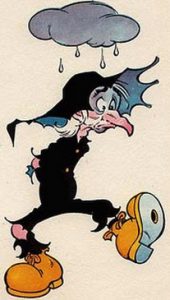The power to direct or influence people’s behavior or the course of events. That is the definition of control, and a lot of people like taking it.
This includes self-control, so before we begin controlling others let’s start there.
Do you have good self-control? There are times when I go through my life as if I had the stuff in spades. I hit a golf ball where I wanted it to go and I say, “Look at that control.” After my next shot you say, “That didn’t last long.”
 In fact the very best golfers in the world say that in a good round they may only hit five or six shots exactly right.
In fact the very best golfers in the world say that in a good round they may only hit five or six shots exactly right.
Olympic gymnasts and skaters fall sometimes, or don’t stick a landing. No one is tackling them or shoving them, they just lose control. As if they always had it.
Sometimes control evaporates instantly. A sure-fire baseball pitcher throws a wild pitch. The top receiver in the NFL drops a perfect pass. The apparent winner of a major golf tournament misses a one-foot putt on the last hole.
All of us, because we have failed, understand how amazing it is when athletes do maintain control.
Outside of games, things happen.
You wake up in the night and can’t go back to sleep. When it is your turn to speak in a meeting, you freeze. You win the lottery, or find a $20 bill underneath some pies in a grocery store. The odds are about the same, but the second one happened to my wife.
 Because you are an observant person, you could add your own list of both good and bad things that have happened to you out of your control. Often when it is good we pat ourselves on the back in congratulations. When it is bad we were just “unlucky.”
Because you are an observant person, you could add your own list of both good and bad things that have happened to you out of your control. Often when it is good we pat ourselves on the back in congratulations. When it is bad we were just “unlucky.”
Luck — success or failure by chance — is our admission that we don’t have control. “Random,” some people say. But is it? Al Capp created a character to depict one who always has bad luck and named him Joe Btfsplk. (The cloud goes where he goes.)
By now you are saying, “OK Captain Obvious, we know that sometimes we lose control. But we have to try to have it, don’t we?”
Now that is a great question.
Why we want control.
Like a girl I dated in college, the world is sometimes terrific and sometimes just a little icky. Terrific is better, more enjoyable, and much less stressful.
Icky is not so pleasant and can be very stressful, but icky is in the headlines.
 If it is a slow news day and nothing icky happens, stories about icky things that might happen take over. We have plenty of those in reserve in case a beautiful day needs to be darkened a little.
If it is a slow news day and nothing icky happens, stories about icky things that might happen take over. We have plenty of those in reserve in case a beautiful day needs to be darkened a little.
We like to think we have control because it assuages our fears of ickyness.
Just off the top of my suntanned head: gun control; climate control; border control; inflation control. Wouldn’t the world be amazing if we controlled all of that? Some seem to think so.
Could we manage all of those things better than we do? I’m sure of it. Can we really control them? No.
Like a new driver who fears an accident, we over-control. Once the driver’s fear is diminished, the over-control diminishes as well. The result for the driver is more control rather than less.
In golf and tennis, the two sports I know most about, the same principle applies. The more I over-control, the less control I actually have. Many activists and politicians seem to not know that.
Controllers, pay attention.
While many people like having control, most people do not like being controlled. This kind of conflict happens a lot between activists and ordinary citizens.
In an extraordinarily tragic case, it apparently happened in Nashville just a few days ago.
But it isn’t only activists who want to control the behavior of others. The government, for instance, does it all the time. Sometimes it is almost unseen.
Having lived much of my life in the Midwest, I was unfamiliar with HOV lanes when we arrived in California. Those letters stand for High Occupancy Vehicle, and where we lived two people in a car met the definition.
My friend scoffed at the idea. “It is social engineering,” he said. And he was right. HOV lanes are a form of bribery, and here in Phoenix they are working better for Electric Vehicles than for commuters.
Speaking of commuters, in the mid-90’s at high traffic times around the Golden Gate Bridge, enterprising young people would hop into the car with a single driver, get them across the bridge in the HOV lane, get $5 or $10, then do the same thing going back the other way.
Great views, easy money, and taking back control.
Who is in control?
Clearly there are things individuals can control in their own lives. Most people control their muscles and minds well enough to walk, talk, socialize and take care of themselves. Illnesses, injuries, and other maladies deny that for some, of course.
Those of us who have a high degree of personal control should be thankful for it.
The challenge of self-control is exactly the reason we play and watch sports. In some sports, the conflict is about controlling both yourself and your opponent.
The battle for control is seen in politics, in businesses, in marriages, and in schoolyards. But life isn’t really about having the most control. At least it shouldn’t be.
We should focus on what we can control. Our own behavior should be at the top of our list.
Am I kind? Do I get angry easily? Do I say things I shouldn’t? Am I an encourager? Is my life a good example? Do I use my talents for good or just for me?
I figure I should not try to control others until I can control myself well. That includes making good choices, or, as I like to say, choosing to do good.
Control that. Do good. It’s in you!
Taking control
The power to direct or influence people’s behavior or the course of events. That is the definition of control, and a lot of people like taking it.
This includes self-control, so before we begin controlling others let’s start there.
Do you have good self-control? There are times when I go through my life as if I had the stuff in spades. I hit a golf ball where I wanted it to go and I say, “Look at that control.” After my next shot you say, “That didn’t last long.”
Olympic gymnasts and skaters fall sometimes, or don’t stick a landing. No one is tackling them or shoving them, they just lose control. As if they always had it.
Sometimes control evaporates instantly. A sure-fire baseball pitcher throws a wild pitch. The top receiver in the NFL drops a perfect pass. The apparent winner of a major golf tournament misses a one-foot putt on the last hole.
All of us, because we have failed, understand how amazing it is when athletes do maintain control.
Outside of games, things happen.
You wake up in the night and can’t go back to sleep. When it is your turn to speak in a meeting, you freeze. You win the lottery, or find a $20 bill underneath some pies in a grocery store. The odds are about the same, but the second one happened to my wife.
Luck — success or failure by chance — is our admission that we don’t have control. “Random,” some people say. But is it? Al Capp created a character to depict one who always has bad luck and named him Joe Btfsplk. (The cloud goes where he goes.)
By now you are saying, “OK Captain Obvious, we know that sometimes we lose control. But we have to try to have it, don’t we?”
Now that is a great question.
Why we want control.
Like a girl I dated in college, the world is sometimes terrific and sometimes just a little icky. Terrific is better, more enjoyable, and much less stressful.
Icky is not so pleasant and can be very stressful, but icky is in the headlines.
We like to think we have control because it assuages our fears of ickyness.
Just off the top of my suntanned head: gun control; climate control; border control; inflation control. Wouldn’t the world be amazing if we controlled all of that? Some seem to think so.
Could we manage all of those things better than we do? I’m sure of it. Can we really control them? No.
Like a new driver who fears an accident, we over-control. Once the driver’s fear is diminished, the over-control diminishes as well. The result for the driver is more control rather than less.
In golf and tennis, the two sports I know most about, the same principle applies. The more I over-control, the less control I actually have. Many activists and politicians seem to not know that.
Controllers, pay attention.
While many people like having control, most people do not like being controlled. This kind of conflict happens a lot between activists and ordinary citizens.
In an extraordinarily tragic case, it apparently happened in Nashville just a few days ago.
But it isn’t only activists who want to control the behavior of others. The government, for instance, does it all the time. Sometimes it is almost unseen.
Having lived much of my life in the Midwest, I was unfamiliar with HOV lanes when we arrived in California. Those letters stand for High Occupancy Vehicle, and where we lived two people in a car met the definition.
My friend scoffed at the idea. “It is social engineering,” he said. And he was right. HOV lanes are a form of bribery, and here in Phoenix they are working better for Electric Vehicles than for commuters.
Speaking of commuters, in the mid-90’s at high traffic times around the Golden Gate Bridge, enterprising young people would hop into the car with a single driver, get them across the bridge in the HOV lane, get $5 or $10, then do the same thing going back the other way.
Great views, easy money, and taking back control.
Who is in control?
Clearly there are things individuals can control in their own lives. Most people control their muscles and minds well enough to walk, talk, socialize and take care of themselves. Illnesses, injuries, and other maladies deny that for some, of course.
Those of us who have a high degree of personal control should be thankful for it.
The challenge of self-control is exactly the reason we play and watch sports. In some sports, the conflict is about controlling both yourself and your opponent.
The battle for control is seen in politics, in businesses, in marriages, and in schoolyards. But life isn’t really about having the most control. At least it shouldn’t be.
We should focus on what we can control. Our own behavior should be at the top of our list.
Am I kind? Do I get angry easily? Do I say things I shouldn’t? Am I an encourager? Is my life a good example? Do I use my talents for good or just for me?
I figure I should not try to control others until I can control myself well. That includes making good choices, or, as I like to say, choosing to do good.
Control that. Do good. It’s in you!
Get The Do Good U news
We won’t send you spam. Unsubscribe anytime.
Let's Do Some Good
Learn more about our programs.